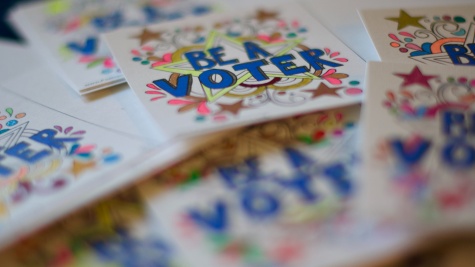Exploring Rural Election Administration
With Special Attention to the Mississippi River Delta
The MIT Election Data and Science Lab helps highlight new research and interesting ideas in election science, including through research grants under our ongoing Learning from Elections program.
Our post today was written by Cameron Wimpy and William McLean, based on their ongoing research funded by this program. The information and opinions expressed in this column represent their own research, and do not necessarily represent the opinions of the MIT Election Lab or MIT.
Election administration in rural areas is generally understudied as a particular interest in election science.
The Covid-19 pandemic has radically changed the election administration landscape in terms of policies and the methods by which many citizens vote. This study explores rural election administration in the time of Covid-19 with three distinct phases. By engaging local election officials in this area we hope to provide heretofore unexplored depth and contexts—especially in light of the pandemic—to rural election administration in this region and beyond. Our plan includes the engagement and partnership of local election officials in the region.
Research Progress
We have begun work on all phases of the project. Our coding efforts thus far have been succesful having coded all counties in the states we plan to visit for the qualitative phase of the project. We have made contact with the officials we plan to invite to our focus groups, and those will begin late next month. On the whole we started later than we initially planned, but we are not far behind our proposed timeline and remain on track to wrap up the project by the end of May. The coding and administrative data analyses will continue until completed in the late spring or early summer.
Our coding effort consists of our hired students coding the (official) election websites of each county in (eventually) all states. We initially double-coded several states to ensure agreement and, once calibrated, the coding began in earnest. We are currently coding whether the following items for each of the websites: URL, election results, early voting information, absentee (mail) information, UOCAVA information, change of address options, poll worker application, candidate information, election schedule, felon information, sample ballot, vote-by-mail tracking, polling location, voter ID requirements, voter registration options, change of address/cancel registration, and registration status. These coded data will then be merged with indicators of rurality for further analysis and reporting once the coding is complete.
We plan to conduct focus groups with election officials in the lower Mississippi Delta region. The counties we are targeting are shown in Figure 1 below. We have made contact with all of the local election officials in the counties included in the map above and have committments from at least one in each state already. Our plan is to arrange a series of three to four geographically accesible focus groups of local election officials.
The groups will involve discussions of election administration in general, the perceived challenges for administering elections in rural jurisdictions, and the unique aspects of both created by Covid-19 both in 2020 and 2022 along with any interesting lines of discussion around CARES Act funding and expenditures. The discussion guide for the focus groups will be developed in partnership with our LEO partner and subject-matter consultant, and we will pre-test each question for clarity, effectiveness, and respectful content. The groups will be audio recorded and then transcribed for analysis. (The project team will comply with proper storage of both the audio records and transcripts, and any identifiable information will be removed before analyses are conducted.)
The other phase of our project involves examining the differences in election administration outcomes in rural versus non-rural jurisdictions in both the 2016 and 2020 elections. This primarily involves examining the impact of rurality on accepted measures of election performance (primarily based on the EPI) in a regression framework. These variables include rejected registrations, UOCAVA ballot rejection/return rates, mail ballot rejection/return rates, and provisional ballot cast/rejection rates. With respect to the recent mid-term elections, we will update our analyses to compare 2018 to 2022 once those data (for 2022) are available. We plan to present preliminary results from these analyses shortly, and plan to examine any potential effects from the pandemic to determine if rural jurisdictions were affected differently than their urban counterparts.



